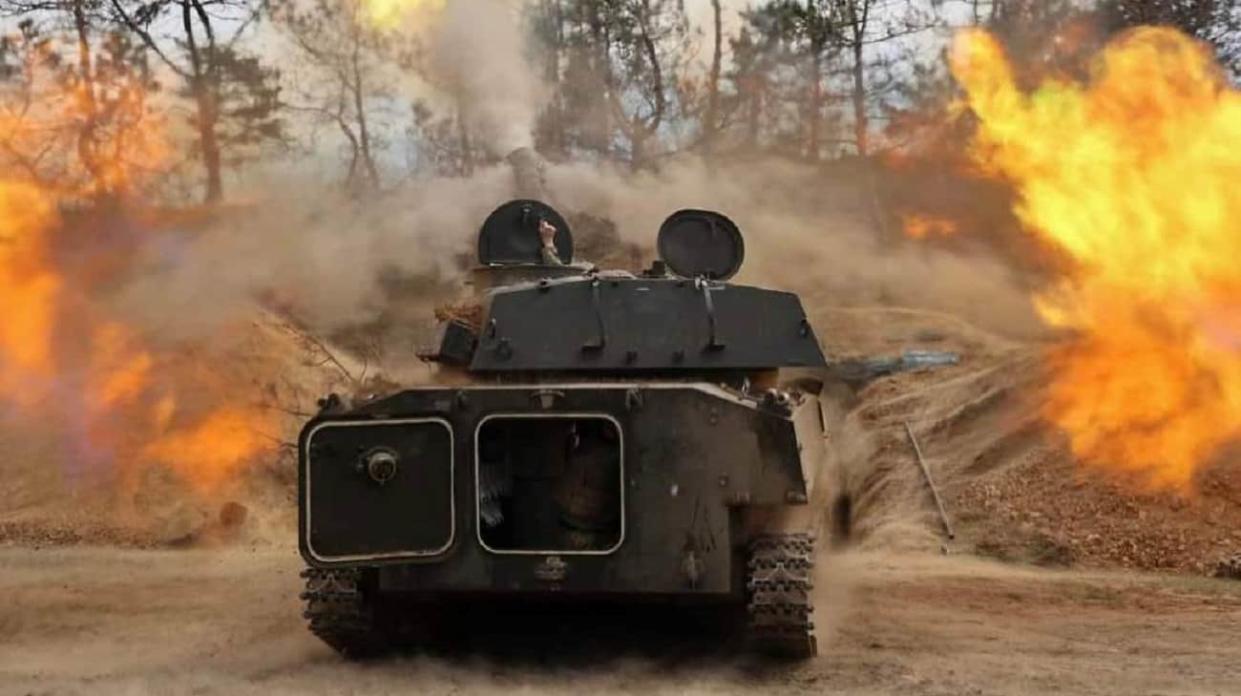Russians escalate number and scale of mechanised ground assaults – ISW

Experts from the Institute for the Study of War (ISW) state that the Russians are increasing the number and scale of mechanised ground assaults in certain areas of the combat zone in Ukraine.
Source: ISW
Details: Analysts point out that over the past two weeks, Russian forces have increased both the number and scale of mechanised ground assaults in certain areas of the front, indicating a noticeable overall rise in the quantity of Russian mechanised assaults across the entire theatre of operations.
Experts add that the Russians may escalate the overall pace of their offensive operations in Ukraine.
The intensification of Russian mechanised assaults typically coincides with large-scale missile strikes and drone attacks on Ukrainian energy infrastructure.
In the light of this, experts suggest that Russian forces may intensify strikes to pressure Ukrainian command to deploy air defence systems away from the front lines, allowing the Russians to enhance aircraft operations supporting ground operations safely.
Ukrainian sources continue to emphasise that the fragmented and delayed arrival of new Western systems in Ukraine would enable Russian forces to adapt to them and mitigate the potential operational advantages these systems might otherwise provide to Ukrainian forces.
Therefore, Politico reported on 3 April that senior Ukrainian military sources claimed that the new Western systems are arriving too late and in insufficient quantities to have a maximum operational impact on the battlefield. In the event of a new Russian offensive in the summer, there is a significant risk that the front line will collapse.
To quote the ISW’s Key Takeaways on 3 April:
Russian forces appear to have increased the number and size of mechanised ground assaults on select sectors of the frontline within the past two weeks, marking a notable overall increase in Russian mechanised assaults across the theatre.
Russian forces may be intensifying the overall tempo of their offensive operations in Ukraine.
Ukrainian sources continue to stress that the piecemeal and delayed arrival of new Western systems to Ukraine will allow Russian forces to adapt to and offset the likely operational benefits these systems would otherwise provide to Ukrainian forces.
The Russian Ministry of Defence (MoD) claimed that the 22 March Crocus City Hall attack has caused a significant increase in Russian contract service applicants amid reported Russian efforts to increase force generation this spring.
Republic of Tatarstan Head Rustam Minnikhanov warned that Russian companies and local authorities must defend themselves against Ukrainian drone strikes and not rely on Russian air defences following the 2 April Ukrainian strikes on Russian military production and oil refinery infrastructure in Tatarstan.
Russian-backed former Ukrainian separatist politician Oleg Tsaryov complained on 3 April that no current Russian political party adequately represents the political interests of Russian ultranationalists, highlighting a possible source of discontent between the pro-Russian ultranationalist community and the Kremlin.
Ukraine and Finland signed a 10-year bilateral security agreement on 3 April.
Russian forces recently made confirmed advances near Bakhmut and Donetsk City and in the Donetsk-Zaporizhzhia Oblast border area.
Russian authorities continue to expand social benefits for Russian military personnel.
Support UP or become our patron!

